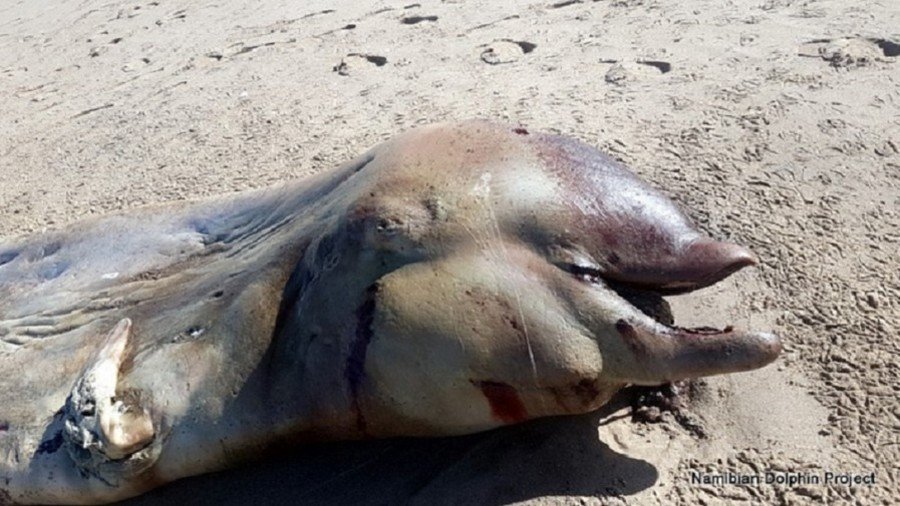Creature from the deep: Strange sea mammal washes up on African beach (PHOTOS)

A weird 20-foot-long decomposing carcass was found washed up on a beach in Namibia, drawing speculation over just what animal the remains derive from.
The strange-looking creature was found by researchers from the Namibian Dolphin Project as they walked along Sandwich Harbour in Dorob National Park last week.
READ MORE: Culprit in decades-old lunar mystery finally found through lost Apollo tapes
“We noticed an unusual object lying just above the high-water mark on the beach,” the group explained on Facebook. “The body was in an advanced state of decomposition – making it look rather un-whale like.”
The flattened body of the creature made the group wonder, “Where are the bones?”
The next day, scientists collected samples from the carcass, including the skull, so as to determine the species. The mysterious creature was identified as being a rarely-seen type of deep-diving whale - the Cuvier’s beaked whale (Ziphius cavirostris). The last time one was spotted in Namibia was in 2000. The mammals can grow to 23 feet and can weigh as much as 3,090 kg.
Researchers were unable to determine how the whale died, although it had a broken jawbone which they believe happened after its death. “Unfortunately, the body was too decomposed to conduct a more detailed necropsy to determine the cause of death or diet of the animal,” the group said.
They will use samples collected from the corpse to learn more about the creature, and its skull will then be sent to the National Museum of Namibia. The dolphin project team said they are often called when strange sea creatures wash up on the beach.
Even though the Cuvier’s beaked whale is rarely seen, there are estimated to be about 100,000 in the world’s oceans. They are known for being able to dive deeper and longer than other mammals, hitting depths of 3,300 feet (1,000 meters), and can hold their breath for more than two hours.
Like this story? Share it with a friend!














